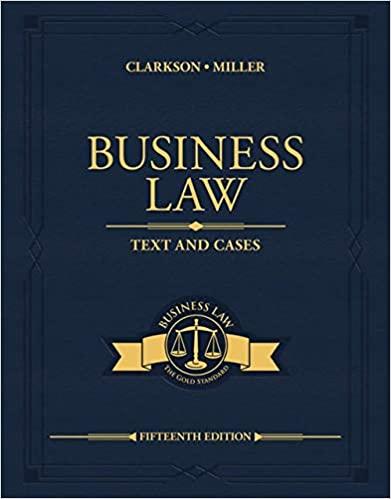Question
Katz's privacy is only protected by the Fourth Amendment to the extent that it forbids arbitrary searches and seizures of persons, houses, papers, and effects.
Katz's privacy is only protected by the Fourth Amendment to the extent that it forbids arbitrary searches and seizures of "persons, houses, papers, and effects." The Amendment does not provide a broad right that would allow this Court to declare everything that has an impact on privacy to be unconstitutional at will. Undoubtedly, the Devisor did not intend for this Court to have such broad legislative jurisdiction, even though they were well aware of the abuses of governmental power. The government's past demonstrates that reserving such powers in courts poses a threat to freedom. Kee v. City of Rowlett, Tex., 247 F.3d 206, 211 (5th Cir. 2001) Whether the covert electronic recording of Kee and Routier's private prayers and chats with their deceased family breached their reasonable expectation of privacy is the decisive question in their complaint. Based on the premise that they had a constitutionally protected reasonable expectation of privacy regarding their oral communications at the outdoor grave site, their Fourth Amendment and "right to privacy" arguments are predicated. The Fourth and Fourteenth Amendments are specifically violated, according to Kee and Routier's complaint: "The Fourth and Fourteenth Amendments protect Plaintiffs from Defendants' unlawful search and seizure." The defendants' actions violate the plaintiffs' right to privacy and personal liberty. Kee v. City of Rowlett, Tex., 247 F.3d 206, 211 (5th Cir. 2001). Since I fail to see how the Fourth Amendment's language could be interpreted to include eavesdropping, I am willing to interpret the Bill of Rights as liberally as possible, but I just cannot, in good faith, assign terms and meanings that they have never been supposed to have before, and that they most definitely do not have in ordinary, common usage. Unless specific exceptions apply, it is illegal under the Fourth Amendment to conduct a search and seizure without a warrant anywhere that an individual has a reasonable expectation of privacy.
- Select the dialog that interests you the most and draft a third postsupporting Ziggy or the government (you choose)
- This third post must rely on a criminal case from the same Circuit (i.e., the same jurisdiction in Posts 1 and 2)
- The case must have relied on Katz in some way, either by comparing or contrasting facts, analysis, and/or holding
Step by Step Solution
There are 3 Steps involved in it
Step: 1

Get Instant Access to Expert-Tailored Solutions
See step-by-step solutions with expert insights and AI powered tools for academic success
Step: 2

Step: 3

Ace Your Homework with AI
Get the answers you need in no time with our AI-driven, step-by-step assistance
Get Started


